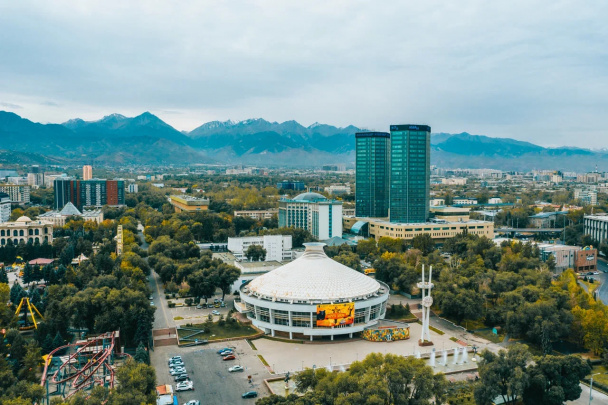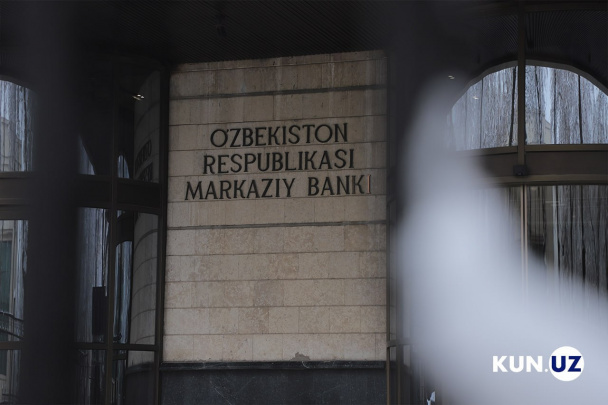A $4 trillion opportunity awaits: Why Uzbekistan needs an ecosystem for Islamic finance
Following the release of an animated video on Kun.uz, numerous calls flooded in from farmers asking, “Where can we go to sign a Salam contract?” Regrettably, we had to respond that such an opportunity is not yet available in Uzbekistan. So, is Uzbekistan lagging in leveraging the potential of Islamic finance? Kun.uz posed this question to experts in the field.
Shokir Sharipov, Journalist: Why is Islamic finance relevant to our current reality?
Iskandar Tursunov, Islamic Finance Expert: Islamic finance serves as an alternative financial system. Many countries worldwide are integrating Islamic finance into their international financial systems.
Hayotjon Azimov, Islamic Finance Expert: The primary goal of Islamic finance, rooted in practical realities, is to ensure fairness among international entities, legal bodies, and individuals. Its core principles are aligned with Islamic guidelines.
Shokir Sharipov: Our animated video focused on the Salam contract, particularly its relevance to agriculture. After its release, we received a flood of questions. Let me ask the most pressing one: Is it possible in Uzbekistan to establish a Salam contract and operate under its terms, or not?
Iskandar Tursunov: When we produced this animated video in collaboration with Kun.uz, we emphasized the Salam contract because agriculture accounts for roughly 30% of Uzbekistan’s GDP. The agricultural sector constantly requires financial resources. After the video’s release, farmers began asking whether there are financial systems in Uzbekistan currently operating under Salam contracts, or if commercial banks or microfinance organizations are providing financing based on Salam contracts. We received relentless calls – over a thousand people reached out.
Unfortunately, financing through Salam contracts is not yet available from commercial banks, financial institutions, or microfinance organizations. Some international financial organizations may have introduced limited lines of financing for specific agricultural sectors based on Salam contracts, but this is not yet publicly disclosed and may still be in progress. However, among entrepreneurs and individuals involved in the sector, relationships based on Salam contracts do exist.
We found ourselves saying “no” to callers, which made us wonder if our video was released prematurely.
Hayotjon Azimov: The positive aspect is that the animated video reached people’s hearts much faster than the posts or articles we typically produce. This delighted us. Secondly, it provided valuable feedback, revealing a significant need for operations based on Salam contracts. Farmers and agricultural workers, who had never approached banks before, became inspired upon learning that Islamic finance offers such possibilities.
Shokir Sharipov: So, at an institutional level, this system doesn’t yet exist?
Hayotjon Azimov: It’s not something that happens overnight. Establishing an institutional framework took years in Malaysia and other countries.
Shokir Sharipov: But is it important?
Hayotjon Azimov: When we discuss Islamic finance, global experience primarily focuses on institutionalized Islamic finance – financial intermediaries operating under Islamic principles.
Shokir Sharipov: Let’s make it clear with an example: Suppose I have two chests full of dollars and want to work under a Salam contract.
Hayotjon Azimov: As an investor with capital, you have two options. You can either manage your investment directly or work through a financial intermediary. In the first case, you’d need to find a farmer yourself and sign a Salam contract directly with them. A financial intermediary, such as a microfinance organization, simplifies this. Plans are underway to establish Islamic banking windows, allowing you to invest your capital in multiple farmers through a financial intermediary, diversifying risk. This is institutionalized Islamic finance.
The financial intermediary handles all the work; you only need to visit their nearest office with your capital. There may even be a mobile app for convenience. Working through an intermediary as an investor is easier and faster. Otherwise, you’d have to research each farmer individually – what they grow, where they’re located, whether in Kashkadarya, Namangan, or Khorezm. For instance, Khorezm is known for rice, but a farmer there might want to grow potatoes. You’d need to investigate thoroughly. A financial intermediary, on the other hand, has access to extensive information, a database, and the capacity to manage these processes, as that’s their core function.
Shokir Sharipov: So, I understand that for this sector to take off, like any other, major players need to enter the market. That’s when the sector will thrive. It all boils down to money, after all. With risk diversification, the more contracts you have, the less you fear risks – if one fails, another yields profit. My question is: Are there major players interested in entering Uzbekistan’s market?
Iskandar Tursunov: Creating a legal and regulatory framework for Islamic finance is the foundation for attracting international financial institutions, banks, or investors. This framework is currently being developed. The first step was the Central Bank’s regulation permitting microfinance organizations to engage in such activities. However, additional amendments and refinements are needed for this regulation to function effectively.
Shokir Sharipov: You didn’t answer my question – are there players looking to enter Uzbekistan’s market, and who are they?
Hayotjon Azimov: When we talk about Islamic finance resources, we primarily refer to two regions: Southeast Asia and the Arab region.
Shokir Sharipov: What about Turkey?
Hayotjon Azimov: In Turkey, Islamic finance resources are not significant in terms of dollar volume; they represent a very small portion of the overall financial market. In financial terms, their liquidity is low. The vast majority of funds – around $4 trillion – are concentrated in these two regions.
For Uzbekistan, it’s not necessary for a specific company to enter. If we create a sufficient legal framework and develop tools for Islamic finance, the funds will come. This isn’t like a postal service where DHL or UPS needs to open an office. The money will flow through instruments, such as loans or other financial tools, into our financial sector, microfinance organizations, and banks.
Iskandar Tursunov: Uzbekistan, with a population approaching 38 to 40 million, over 90% of whom are Muslim, is a highly attractive market for Islamic finance resources and institutions. However, a robust ecosystem and legal framework are essential. If an Islamic finance resource wants to enter through a bank, but that bank lacks an Islamic finance window or there’s no Islamic microfinance organization, how can it operate?
Related News

18:11 / 27.05.2025
Global Cities Index 2025: How Central Asian capitals compare

15:53 / 26.05.2025
Central Bank raises inflation forecasts amid energy tariff hikes

21:12 / 14.05.2025
Uzbekistan aims to finalize WTO membership process in 2025

17:33 / 13.05.2025




